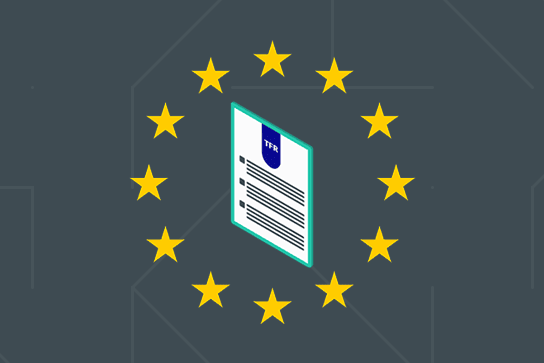
The Main Differences Between the EU and the UK’s Travel Rules
The FATF’s Travel Rule made significant headway this year. The Transfer of Funds (TFR) went live on 29 June; EU crypto asset service providers (CASPs) have an 18-month grace period to get their affairs in order before it becomes binding on 30 December 2024. The UK’s grace period officially ended with their implementation of the Travel Rule on 1 September.
The good news for regulators and crypto businesses in either jurisdiction is that the regulations are not overly different; both aim to mitigate financial crime and the misuse of crypto assets while providing regulatory clarity for the ecosystem.
When compared the EU and UK’s Travel Rules are incredibly similar, with only minor differences, allowing for seamless business interactions between the 2 jurisdictions. These differences will be discussed below, starting off with a focus on data to be exchanged, self-hosted wallets and thresholds.
The Main Differences Between the EU and the UK’s Travel Rules
Travel Rule Data to Be Exchanged
For all transfers in the EU, the originating CASP must communicate the following information with each crypto transfer before or simultaneously with the transfer.

Unlike the EU, the UK requires the exchange of fewer data points for domestic transfers. In all transactions within the UK and in international transfers below EUR 1000, CBs only need to gather:
The originator and beneficiary's names and
The originator and beneficiary's account number (or unique transaction ID).
The account number may be the wallet address (also known as a public key) used in the transaction. This is the same data point referred to as crypto asset account number in the EU.
Only when transactions are over EUR 1000 between a foreign VASP / CASP and a UK-based CB is additional information required for transfers.

Download the EU Travel Rule Overview
Self-hosted Wallets
In both jurisdictions, transfers involving an exchange and a self-hosted wallet fall under the Travel Rule.
However, CASPs registered in the EU must obtain the required Travel Rule information on the transfer’s originator and beneficiary from its client. Additionally, if a self-hosted wallet owner sends or receives more than EUR 1000 to or from their own wallet using a CASP, the CASP will need to collect proof that the customer controls the self-hosted wallet.
In the UK, CBs are to first apply a risk-based approach and assess the risks the wallet address could pose according to Money Laundering, Terrorist Financing and Proliferate Financing standards, then request the Travel Rule data. Only in the case of high-risk transfers is wallet verification required.
Moreover, additional originator Travel Rule data may be requested with transactions over EUR 1000 - based on a risk analysis. Which can include:
customer identification number (or principal place of business), or
address, or
birth certificate number, or
passport number, or
national identity card number, or
date and place of birth.
Read the UK’s Travel Rule Requirements
Thresholds
The EU and the UK have a zero threshold (EUR 0). Travel Rule data is to be exchanged for every transaction, but the UK is more lenient with the amount of data depending on the transaction value.
For amounts under EUR 1000, the following information does not have to be supplied:
customer identification number (or principal place of business), or
address, or
birth certificate number, or
passport number, or
national identity card number, or
date and place of birth.
While the EU did consider this exception, they removed an exemption threshold with the finalisation of the TFR in June. Due to the borderless nature of cryptocurrencies, the EU decided to apply the complete set of Travel Rule data to all transactions, irrespective of value or location.
Download the UK Travel Rule Overview
Find out how 21 Travel Rule can help your business today



